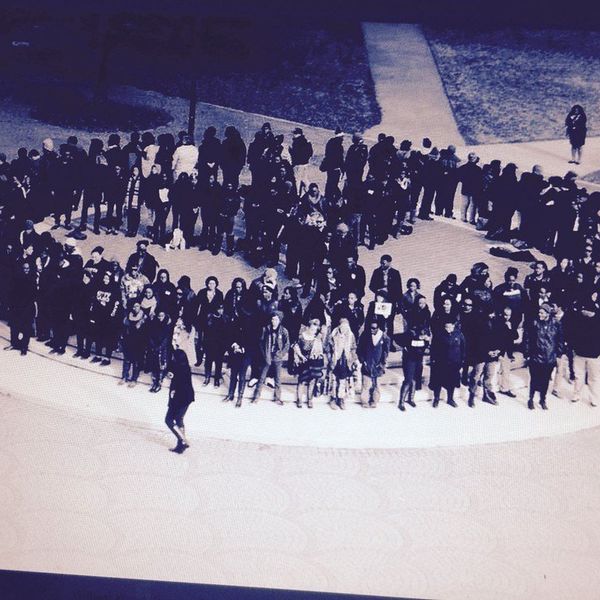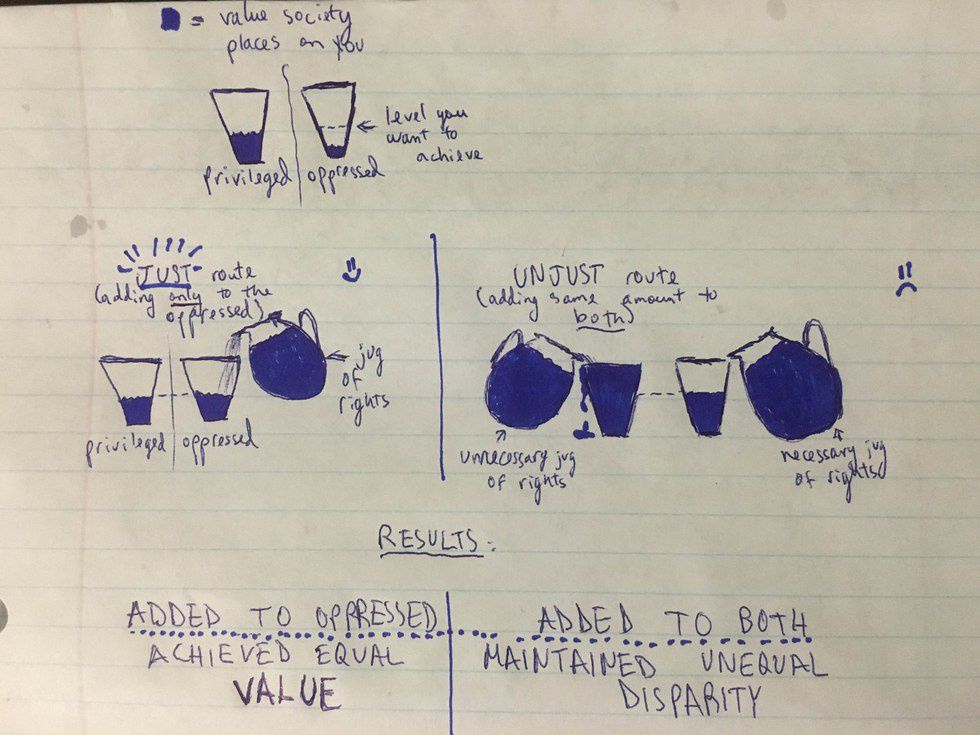Most human beings, if not all, experience privilege in one way or another. If not due to skin-color, then due to wealth, gender identity, sexuality, health conditions, or anything else. These privileges come from the extremely biased circumstances under which the laws that govern us (and the social doctrines that permeate our existence) were created, and as well, from the perpetuation of their unquestioned implementation.
From the dawn of civilization, law-makers and other authority figures have utilized their position of power in order to set norms that favor them. Indeed, power has proved to be quite a useful tool for them, since it has allowed these individuals to achieve their most selfish goals: those that involve placing themselves (and their loved ones) above everyone else.
We can never get rid of humans' selfish drives, so as much as any nation may claim to be just and unbiased toward its citizens, it is impossible for anyone – especially law-makers – to escape the millennia-old human tradition of discriminating "the other" as soon as they threaten "us" and "our" position in the social strata.
These biases, which we are exposed to since birth, never escape us, regardless of how independent we may claim to be; as such, all that we beget will contain traces of whatever has shaped our character, certainly including the prejudices that are ingrained in us.
Due to the nature of their origin, these prejudices become normalized, for things have never been otherwise, and we do not know any different. Our conceptions of justice, therefore, carry these biases with them, with the result that we never truly perceive an accurate image of justice in our heads.
It is this normalization, moreover, that is most dangerous to progress of any kind. The reasons why can be found when answering the following queries:
Have you ever spoken about a political movement (that involves a fight for your own rights) to others, and have they attempted to invalidate your points while painting you as "the angry minority"? Have they tried with all their might to convince you that your pleas for justice are too extreme, to the point that you are offending them? Have you received backlash when you call someone out on their problematic behavior simply because they are too uncomfortable with the idea of analyzing themselves?
Perhaps you have been on the receiving end (which is far more likely); if so, have you felt offended? Have you ever wondered whether you are justified in feeling that way?
It seems to me, that oftentimes, the prospect of "the oppressed" or "the other" being lifted, scares the privileged. In other words, due to the normalization of inaccurate definitions of justice, whenever the privileged feel left out of a movement, they become scared that they will lose their position of power, and as a result, vehemently oppose whatever that movement entails.
For example, many cisgendered males oppose feminism merely because they feel left out. Mention the wage gap, domestic abuse, discrimination in the workplace and in the media, or any other issue women face, and they (these men) become defensive, closing their minds while trying to invalidate the points being made. This is because the one time that they are not the main focus, they feel attacked, they feel it is unfair – no doubt due to their erroneous conceptions of justice.
The same can be said when heterosexuals oppose the LGBTQ+ movement, or when white people dismiss the Black Liberation movement.
All the aforementioned movements are by no means extreme: they attempt to empower the disenfranchised. Because of skewed ideas of justice, however – ingrained as they are with prejudices – those with privilege get easily offended.
But why do I believe that getting easily offended is wrong in this particular case? The following visual thought experiment might be helpful when attempting to understand this matter:
Say a glass is half full with water, while another glass is one-quarter full. If the half-full glass represents the value society places on a privileged group of individuals, while the one that is one-quarter full represents an oppressed group, then what these movements try to do, is make both glasses level with each other — that is, make the one-quarter full glass become half full, too.
In order to achieve this, one must add water only to the glass that is one-quarter full. If you were to simultaneously add water to the one that is already half full, then it would merely keep on filling to the brim, and the one-quarter full glass would never gain enough water to catch up.
(Because of the fact that this example might have made it more confusing to you, I have attached the badly-drawn diagram below:)
Unfortunately, when individuals criticize movements like the ones I mentioned above, they do so because they believe the most important thing is that we lift people up equally (i.e. that we add the same amount of water to both glasses), not – as it should be – that we lift up only the group that is disenfranchised (i.e. that we add water only to the glass that needs it). They don't realize that say, for feminism to focus on men as much as it does on women, it would mean for it to utterly fail at its aim, since by doing that it would merely be lifting both groups up equally while maintaining the exact same disparity in social and political treatment.
This is a tendency that we must fight against unless we hope to perpetuate injustice in our society. It is essential that we consider our position of power in relation to others when we get offended by someone who is merely fighting for their rights. Instead, we should modify our erratic behavior so that it amplifies – and doesn't hinder – the voices that are so vehemently trying to be heard.






















